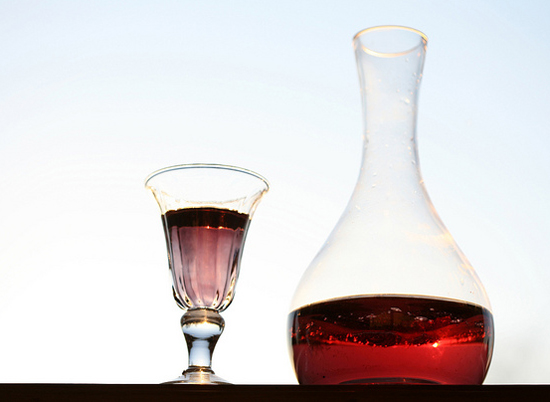
This April marks the twenty-sixth annual Alcohol Awareness Month, a longtime effort to raise awareness and understanding about the disease of alcoholism, sponsored by the National Council on Alcoholism And Drug Dependence. Schools and community organizations across the country are sponsoring alcohol-awareness events and seminars all month, and we here at the Maurer Foundation wholly support this effort to increase awareness of the dangers of alcohol, especially given our shared goal of educating and empowering young people to make healthy choices.
One reason not to drink alcohol? It increases your risk for breast cancer. Breast cancer and alcohol have been linked in multiple studies, and drinking is now considered one of the most reliably demonstrated risk factors for breast cancer. Even alcohol consumption levels as low as a daily glass of wine with dinner can lead to a higher risk of breast cancer. Despite what we might hear in the news about red wine having positive health effects, those benefits do not apply to breast health.
Unfortunately, the research shows that all kinds of alcohol—in any amount—increases our risk for one of the types of breast cancer known as hormone-receptor-positive breast cancer. This may be because alcohol increases estrogen levels, or because it damages DNA in our cells. We don’t understand the mechanics just yet, but we do know the risks.
In the spirit of National Alcohol Awareness Month, though, we want to focus on a specific high-risk behavior that is most common among the high school and college-age young women we speak with regularly during our breast health programs. Binge drinking, defined as drinking five or more alcoholic beverages on one occasion, has been shown in some research to have an especially strong relationship with breast cancer. Beginning drinking at an early age, while the breast tissue is still developing, has also been linked to an increased risk of breast cancer.
As an organization devoted to educating and inspiring women, we believe that awareness of alcohol and its potential consequences is essential. In our breast health programs, we talk with young women about the risks of drinking alcohol, smoking, and obesity. Alcohol may be one piece of the puzzle, but it is frighteningly prevalent among our target audience.
A recent report from the Centers for Disease Control & Prevention showed that binge drinking, which they also define as consuming five or more drinks in a row, is not uncommon among young women. One in five high school girls and one in four college-age women reported binge drinking in the past month. It’s safe to say that breast cancer is likely not on their minds when they consider the health impacts of drinking alcohol, but the choices they make today could impact their health for years to come.
Will you join us in recognizing National Alcohol Awareness Month and spread the word about alcohol and breast cancer to these young women? You could share this blog post on your Facebook page, make a donation, or request a breast health program in your school or community group. Maybe you can simply talk to an important young woman in your life about breast cancer and binge drinking.
How will you raise alcohol awareness this April?
